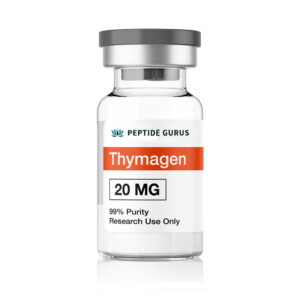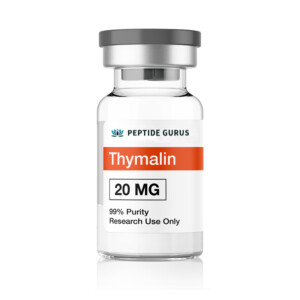Research peptides are essential tools in scientific studies and medical research. To maintain their integrity and effectiveness, proper storage is crucial. Understanding how to store research peptides properly can significantly impact the quality of your experiments and the reliability of your results. This article will guide you through the best practices for storing research peptides, ensuring they remain stable and effective over time.
The first step in storing research peptides properly is to understand their chemical nature. Peptides are short chains of amino acids, and their stability can be affected by various factors such as temperature, humidity, and light. Therefore, it is essential to store them in conditions that minimize these environmental impacts. Typically, peptides should be stored at low temperatures, preferably in a freezer at -20°C or -80°C, depending on their specific stability requirements.
One common mistake in peptide storage is exposing them to repeated freeze-thaw cycles. Each cycle can degrade the peptide, reducing its effectiveness. To avoid this, aliquot your peptides into smaller, single-use portions before freezing. This way, you only thaw the amount you need for a specific experiment, preserving the rest for future use. Label each aliquot clearly with the peptide name, concentration, and date of preparation.

Humidity is another critical factor in peptide stability. Peptides are hygroscopic, meaning they readily absorb moisture from the air. To prevent this, store peptides in airtight containers with desiccants to absorb any residual moisture. Vacuum-sealed bags or ampoules are also effective in maintaining a dry environment. Additionally, always handle peptides in a low-humidity environment, such as a glove box or a desiccator.
Light exposure can also degrade peptides, particularly those with aromatic amino acids like tryptophan and tyrosine. To protect peptides from light, store them in opaque containers or wrap them in aluminum foil. This is especially important for peptides that will be stored for extended periods. When handling peptides, minimize their exposure to light by working quickly and keeping them covered as much as possible.
The solvent used to dissolve peptides can also impact their stability. For long-term storage, peptides are often stored as lyophilized powders, which are more stable than peptides in solution. If peptides must be stored in solution, use sterile, high-purity solvents and avoid repeated freeze-thaw cycles. For peptides that are sensitive to oxidation, consider adding antioxidants like ascorbic acid or glutathione to the solution.
Maintaining a consistent storage temperature is crucial for peptide stability. Temperature fluctuations can cause peptides to degrade or lose activity. Use a dedicated freezer with a reliable temperature control system, and avoid opening the freezer door frequently. If possible, use a backup power supply to ensure the freezer maintains a consistent temperature in case of power outages.
Proper labeling and documentation are essential for effective peptide storage. Each container should be labeled with the peptide name, concentration, date of preparation, and any relevant storage conditions. Keeping detailed records of peptide storage conditions and usage can help you track their stability and identify any potential issues. Consider using a digital inventory system to manage your peptide stocks and ensure accurate record-keeping.
Regularly inspecting your peptide stocks is another important practice. Check for any signs of degradation, such as changes in color, consistency, or solubility. If you notice any issues, discard the affected peptides and replace them with fresh stocks. Regular inspections can help you catch problems early and prevent them from affecting your experiments.
When transporting peptides, it is essential to maintain their stability. Use insulated containers with ice packs or dry ice to keep peptides cold during transit. Ensure that the peptides are well-sealed and protected from moisture and light. For international shipments, consider using specialized courier services that offer temperature-controlled shipping options.
In addition to physical storage conditions, consider the chemical stability of your peptides. Some peptides are prone to oxidation, deamidation, or hydrolysis. To mitigate these risks, use stabilizing agents or modify the peptide sequence to enhance stability. For example, replacing methionine with norleucine can reduce oxidation, while replacing asparagine with glutamine can reduce deamidation.

The storage container material can also impact peptide stability. Avoid using containers made of materials that can interact with peptides, such as certain plastics. Glass or high-quality plastic containers are generally preferred. Ensure that the containers are clean and free from contaminants before use.
For peptides that require long-term storage, consider using lyophilization. This process involves freezing the peptide solution and then removing the water through sublimation. Lyophilized peptides are generally more stable and can be stored at room temperature for short periods. However, they should still be stored in a freezer for long-term stability.
When reconstituting lyophilized peptides, use sterile, high-purity water or buffer solutions. Avoid using solutions with high ionic strength or extreme pH, as these can affect peptide stability. Gently vortex or swirl the solution to dissolve the peptide, avoiding vigorous shaking, which can cause foaming and denaturation.
For peptides with limited stability, consider using stabilizing additives. Common stabilizers include trehalose, mannitol, and sucrose. These additives can help protect peptides from degradation during storage and handling. However, be aware that some stabilizers can interfere with certain assays or experiments, so choose them carefully based on your specific needs.
If you are unsure about the best storage conditions for a particular peptide, consult the manufacturer’s guidelines or scientific literature. Manufacturers often provide specific recommendations for storage and handling based on their stability studies. Following these guidelines can help ensure the longevity and effectiveness of your peptides.
In summary, storing research peptides properly involves controlling temperature, humidity, light, and chemical stability. By following best practices such as aliquoting, using airtight containers, protecting from light, and maintaining consistent storage conditions, you can preserve the integrity and effectiveness of your peptides. Proper labeling, documentation, and regular inspections further ensure that your peptides remain in optimal condition for your research.
Understanding the specific requirements of each peptide is crucial for effective storage. Different peptides may have unique stability profiles, and tailoring your storage practices to meet these needs can significantly enhance their longevity. Stay informed about the latest research and advancements in peptide storage to continually improve your practices.
Finally, consider the environmental impact of your storage practices. Use energy-efficient freezers and minimize waste by only preparing the amount of peptide you need for your experiments. By adopting sustainable practices, you can reduce your environmental footprint while maintaining the quality of your research.
By following these guidelines, you can ensure that your research peptides remain stable and effective, contributing to the success of your scientific studies. Proper storage is a critical aspect of peptide research, and investing the time and effort to store your peptides correctly can yield significant benefits in the long run.
All products on this site are for Research, Development use only. Products are Not for Human consumption of any kind.
The statements made within this website have not been evaluated by the US Food and Drug Administration or HEALTH CANADA. The statements and the products of this company are not intended to diagnose, treat, cure or prevent any disease.
PeptideGurus is a chemical supplier. PeptideGurus is not a compounding pharmacy or chemical compounding facility as defined under 503A of the Federal Food, Drug, and Cosmetic act. Peptide Sciences is not an outsourcing facility as defined under 503B of the Federal Food, Drug, and Cosmetic act.
PeptideGurus is a leading supplier of American-made research peptides, offering top-quality products at competitive prices. With a focus on excellence and customer service, they ensure a secure and convenient ordering process with global shipping.
CONTACT